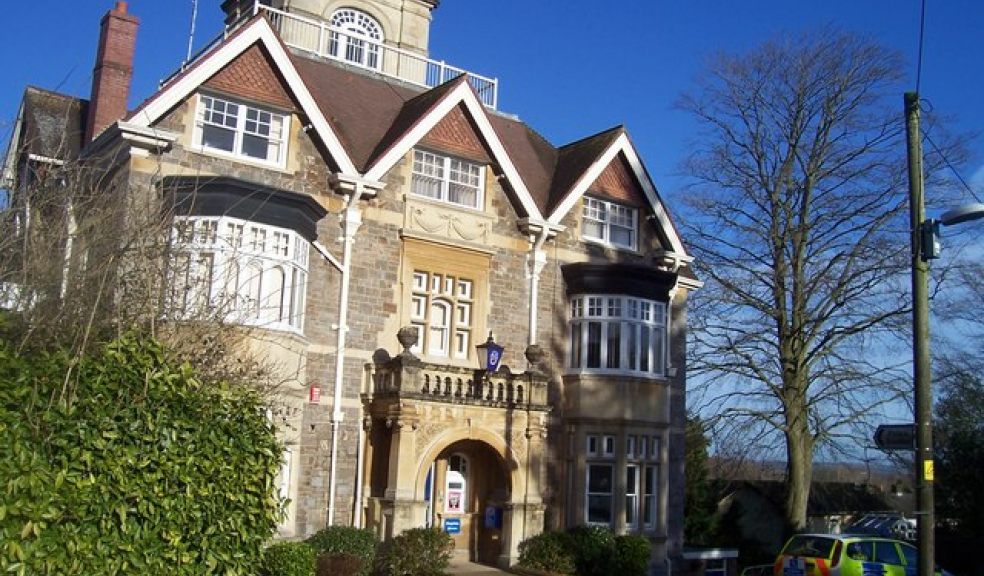
Police axe half of public enquiry offices
Devon and Cornwall Police are expected to close more than half of their public front offices in a controversial bid to save money.
Across the two counties the force is expected to fully close 10 out of 21 public front offices while the Newquay desk will only open during summer.
The public desks at Exmouth, Tiverton, Honiton, Okehampton, Newton Abbot, Totnes Falmouth, Penzance, Launceston, Bude and Liskeard will all be closed under the plans.
The front offices allow the public can to report crime or discuss other issues by walking in off the street.
27 civilian posts will also be lost in the closure as the force cuts its Public Enquiry Officers from 61 to 34.
Exact details around opening hours and staffing are still to be confirmed, but the Exeter front office at Heavitree station is expected to remain open 6-days a week.
changes are expected to save the Force around £760,000 per annum. The overall number of full-time equivalent Public Enquiry Officer posts will be reduced from 61 to 34 as part of the plan.
Assistant Chief Constable Paul Netherton said: “In the current financial climate the Force needs to make challenging decisions around how we best use our resources to benefit our communities.
“We are required to make difficult decisions in order to maintain visibility and maintain front line policing whenever possible.
“The Force has carried out a review of how the public contact police in Devon and Cornwall and it has shown that the amount of people physically calling at a police station continues to diminish.
“In even our busiest stations this can be as low as five to six people an hour at peak times and for quieter stations can be no personal callers at all for periods of time.
“As a result, we will now formally consult with staff unions regarding how we use Public Enquiry Offices to get the best value from the resources that we have.
“The Force currently receives around one million contacts a year from the public via 999, 101 and contact with the Force Enquiry Centre and Force website. This number far outweighs the amount of people actually attending a police station.
“With the development of online communication and further investment in technology, it is only likely to reduce further.”
ACC Netherton added: “While we may be reducing the amount of Public Enquiry Offices immediately accessible to the public, the number of operational police stations is not changing and police officers and staff will still work from those stations affected by the Public Enquiry Office Review.
“While closing some enquiry offices has an inevitable effect on staff and a change in the way we operate as a Force, the considerable savings are expected to be in excess of £ 750,000 per year and the Force is faced with making difficult decisions about the way in which we deliver services to our communities.
“Maintaining a visible presence in our communities remains a critical factor and we will do everything possible to target resources and achieve this. It is hoped this review will further allow us to increase visibility away from traditional police sites.
ACC Netherton further added: “Innovation is key and having a more mobile police presence means a better, more efficient and visible police service.
“We are committed to maintaining community based services and working with partner agencies to do this in the most efficient way possible.
“It is important to emphasise that this plan is subject to full consultation with a definitive decision expected in July.”
Responnding to the decision Police and Crime Commmisoner Tony Hogg said: PCCTony Hogg’s response to proposed closure of some police front offices in Devon and Cornwall
“I asked the Chief Constable to find £12m of savings from the police budget over the next four year so it is right that he first identifies functions which add less value for the public and partners.
“I am satisfied that his review into police enquiry offices is well researched and shows that those earmarked for closure are not well used by the public, some being visited on average by fewer than 10 people a day, which is not sustainable in the current financial climate.
“Interaction between the police and the public is important to me, so whilst I have agreed that it is right that certain offices should close, on behalf of the public, I have sought robust assurances that this will not suffer
“As the closure of any front office approaches, subject to consultation, I will ensure the Force continues to develop and puts in place alternative methods of communication.
“This will include better access to new systems that will help the public access information and interact with the police, for instance through the website and via social media. There must also be improvements to the 101 service identified through a review of the existing service being carried out by my team at the OPCC.
“While digital channels and the telephone are important, face to face contact between the public and the police remains essential.
“There must and will be a plan for alternative, direct means of meeting and engaging with the public where an enquiry office is closed.
“The police will work closely with partners and the public over the next few months to put these arrangements in place.
“We must all accept that the way we deal with the police has changed over the past few years and understand that need to be made now and in the future.
“However, I am confident the savings made by withdrawing this underused service will help maintain the number of front line police officers over the next four years.”
Picture Tiverton Police Station © Copyright Lewis Clarke and licensed for reuse under this Creative Commons Licence.




















